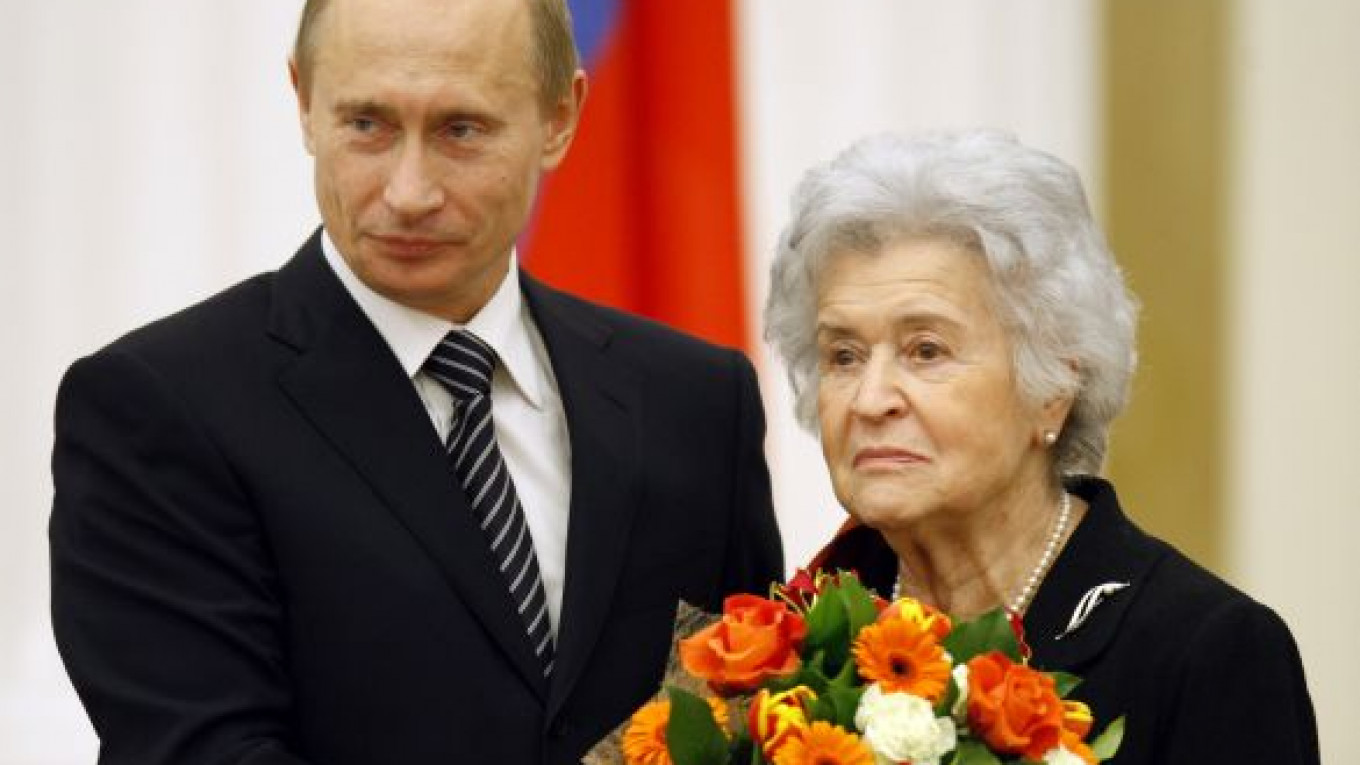Corrections appended.
Irina Antonova, Director of the Pushkin museum, has stepped down from her position, which she has held since 1961 — only eight years after Stalin's death. Born in 1922 and now 91 years old, she has until this point held the title of the oldest director of a major art museum in the world.
Her relinquishing of the position was announced at a press briefing held by Minister of Culture Vladimir Medinsky on Monday, marking the end of decades of responsibility bestowed upon her first by Khrushchev after having joined the museum in a more junior capacity in 1945.
Medinsky called Antonova a "living legend," according to RIA Novosti, and stated that choosing carefully from the list of candidates considered for her position had been extremely important in order to preserve the continuity of Antonova's work.
Gallerist and art historian Marina Loshak is to take over as new director starting from July 10. Loshak is current art director of the Manezh Exhibition Hall and is also included on the Council of Experts for the Kandinsky Prize.
Medinsky spoke of Loshak highly, complimenting her "great experience with museum activities," and noting that she had also had experience working "in private business connected with the arts."
While Antonova is stepping down, she is to remain an honorary president of the Museum. This continuity will "allow Antonova to maintain her position at the museum, and her authority outside of Russia," said Medinsky.
Antonova has reaped several awards and honors across her 52 years as director, being presented with the "For the Merits to the Fatherland. 1st Class" medal by Russian President Vladimir Putin in 2007.
She is widely recognized for organizing the Moscow-Paris Exhibition of Chagall and Kandinsky in 1981 after Moscow's famous Tretyakov Gallery refused, and is credited with bringing a newfound appreciation of impressionism to Russia, after managing to convince state authorities that they deserved exhibition after having been in storage for years in 1973. She also succeeded in exhibiting the Mona Lisa in Moscow in 1974 for the first time.
While she describes herself as a patient woman, her time as director has not been devoid of controversy. The Pushkin Museum's age-old feud with the Hermitage in St. Petersburg has seen the two warring over a collection of paintings, including Matisse's famous canvas "La Danse."
Antonova has been unwavering in her stance on the controversial artifacts taken from Germany at the close of World War II. In an interview with German newspaper Der Spiegel last year, she outlined why she thought Russia should keep the pieces that German press was in an uproar over upon Putin’s visit last month."The issue of trophy art is primarily one of an ethical nature. It has to do with moral and not so much financial compensation for Russia," she told the paper, referencing the ruinous effect of the Leningrad Siege.
Corrections: the Culture Minister is Vladimir Medinsky, not Medina, and the art historian's name is Marina Loshak, not Marian Loshak.
A Message from The Moscow Times:
Dear readers,
We are facing unprecedented challenges. Russia's Prosecutor General's Office has designated The Moscow Times as an "undesirable" organization, criminalizing our work and putting our staff at risk of prosecution. This follows our earlier unjust labeling as a "foreign agent."
These actions are direct attempts to silence independent journalism in Russia. The authorities claim our work "discredits the decisions of the Russian leadership." We see things differently: we strive to provide accurate, unbiased reporting on Russia.
We, the journalists of The Moscow Times, refuse to be silenced. But to continue our work, we need your help.
Your support, no matter how small, makes a world of difference. If you can, please support us monthly starting from just $2. It's quick to set up, and every contribution makes a significant impact.
By supporting The Moscow Times, you're defending open, independent journalism in the face of repression. Thank you for standing with us.
Remind me later.






